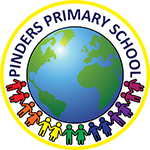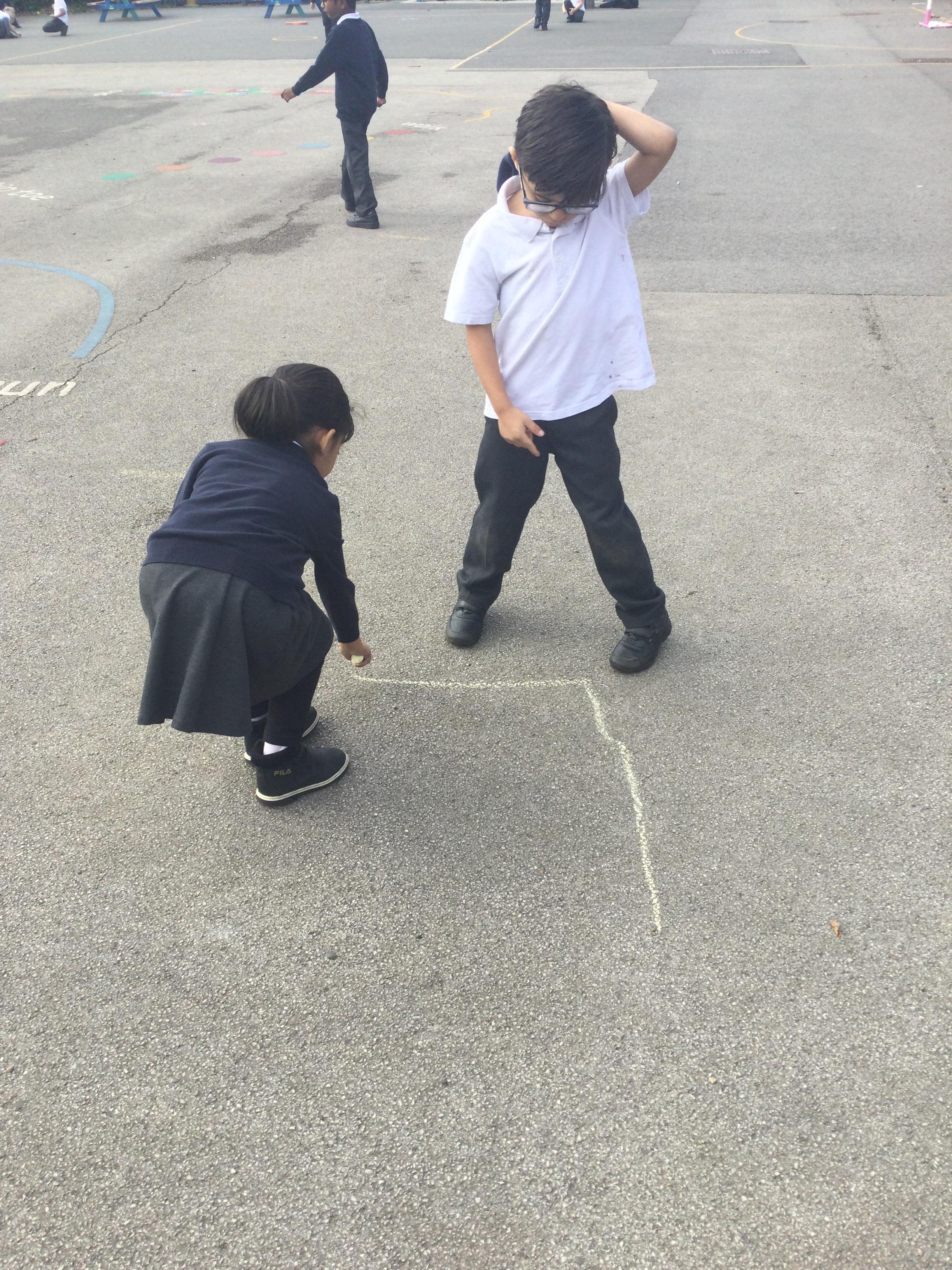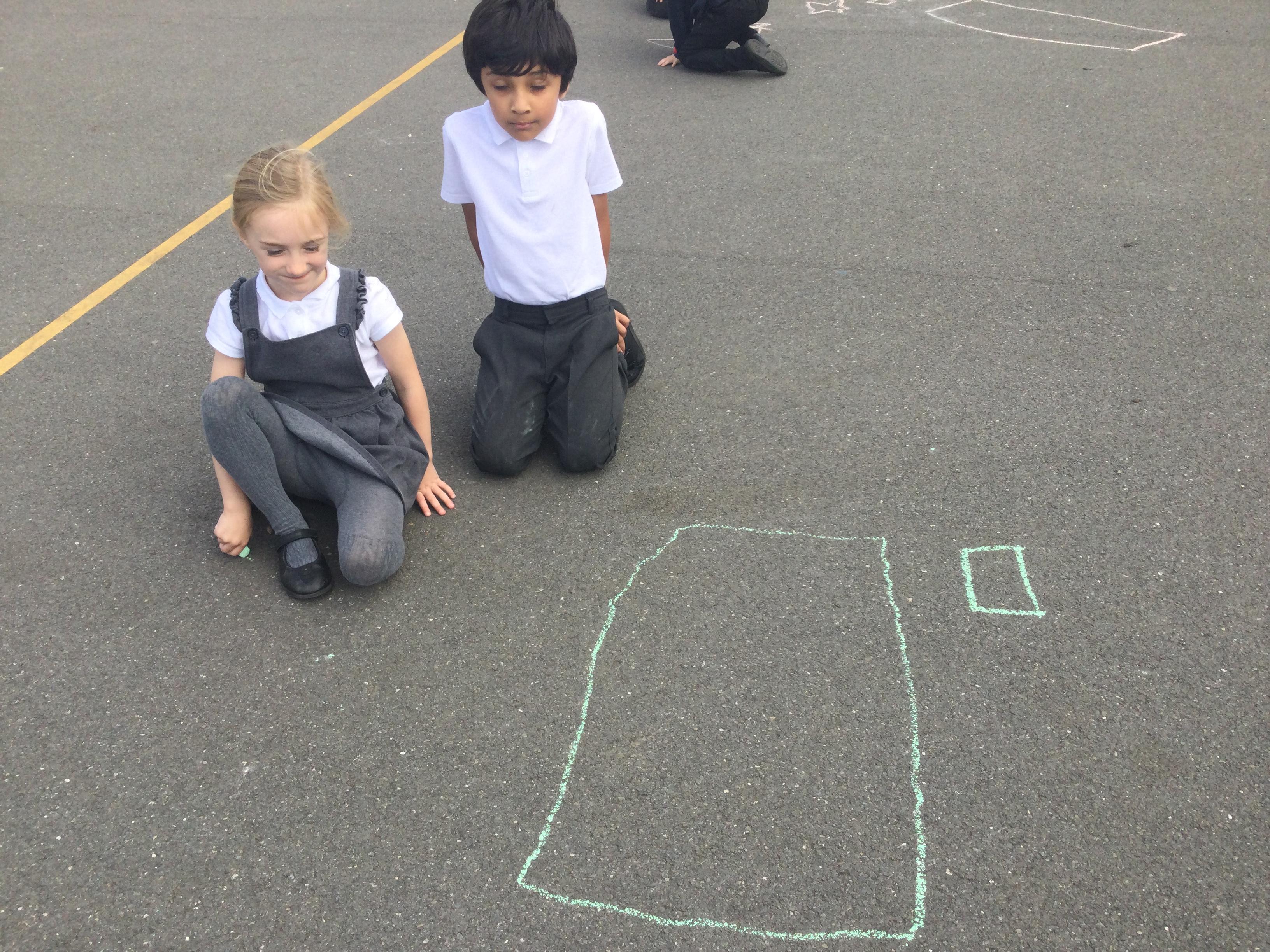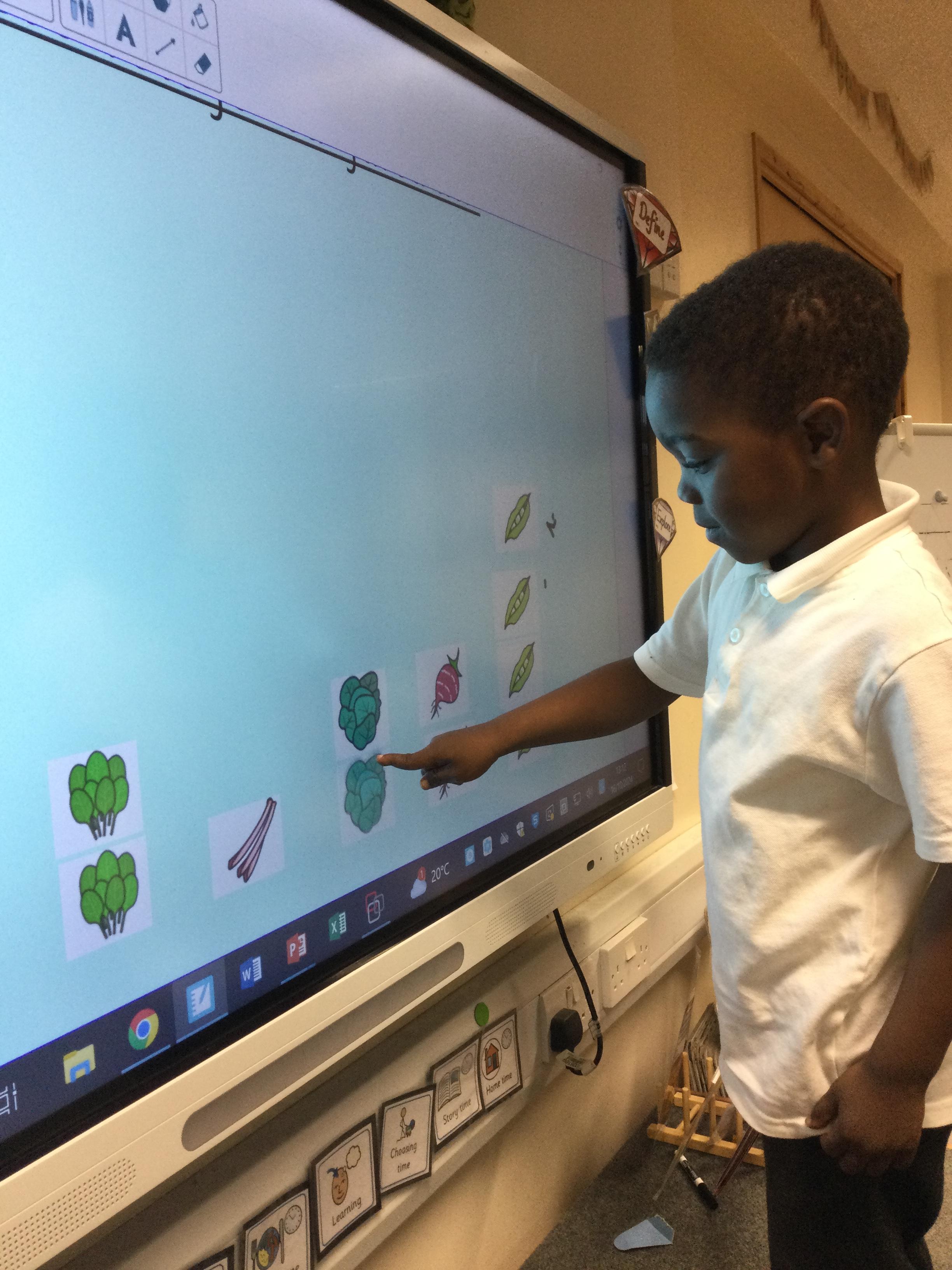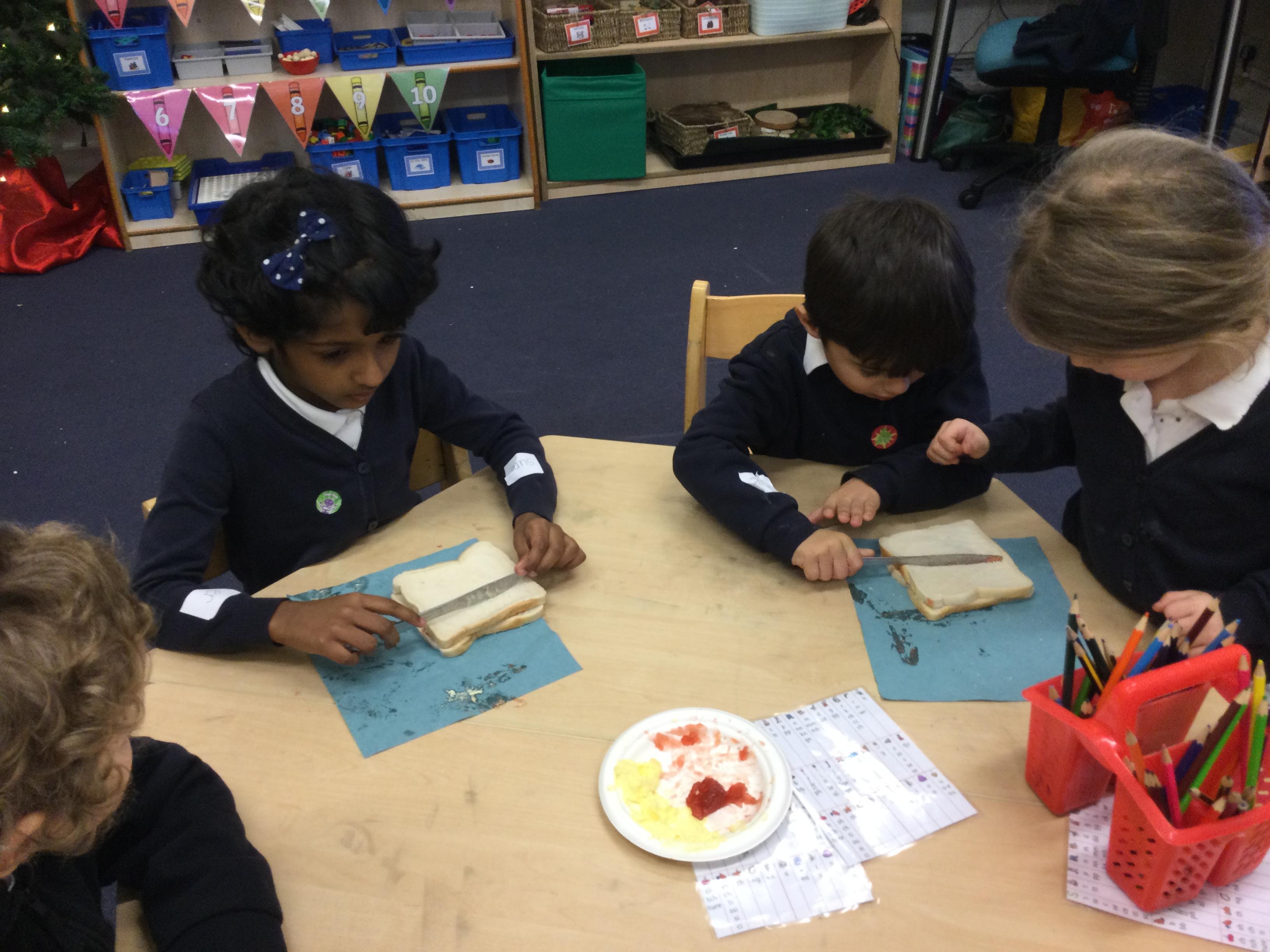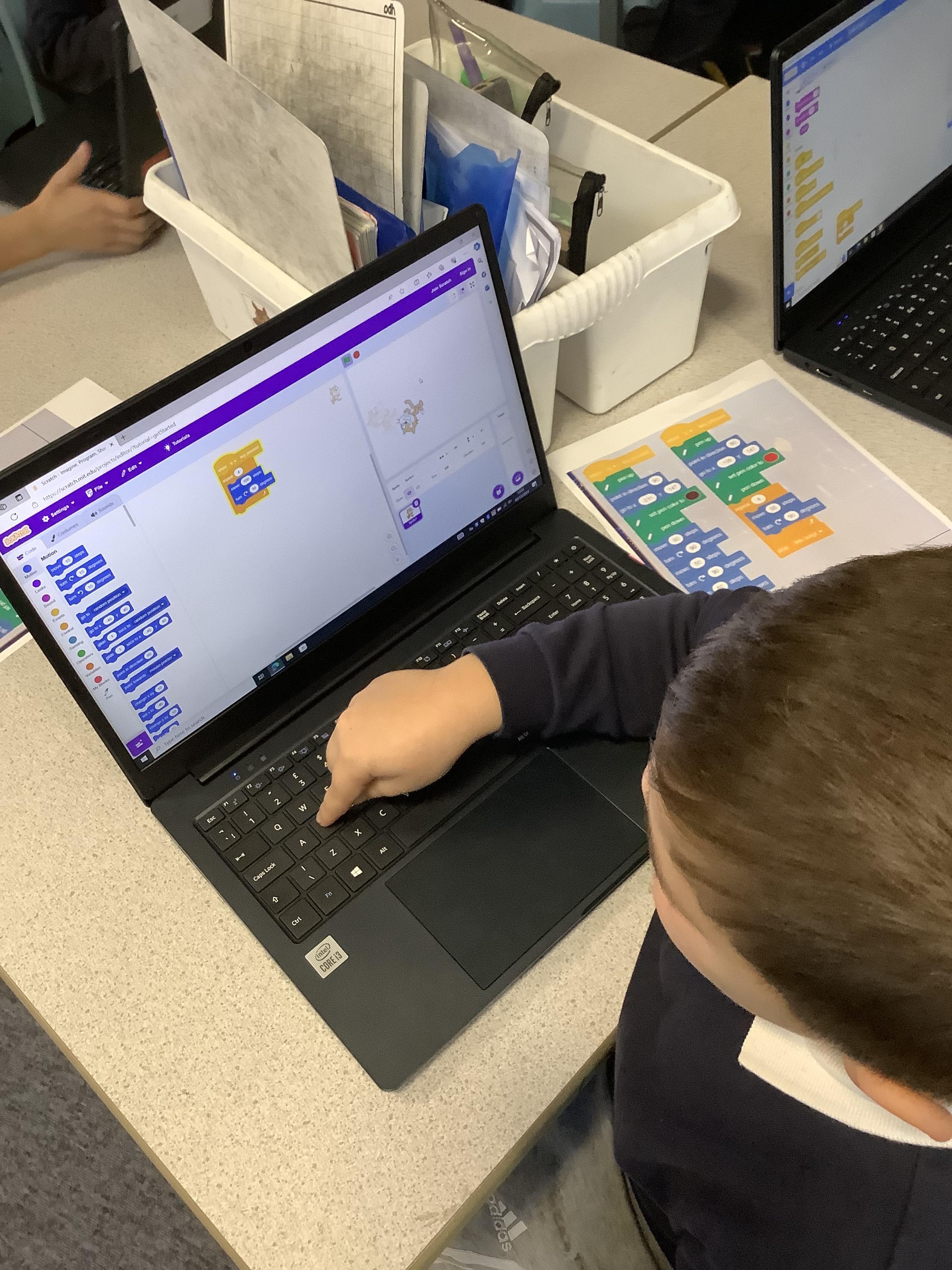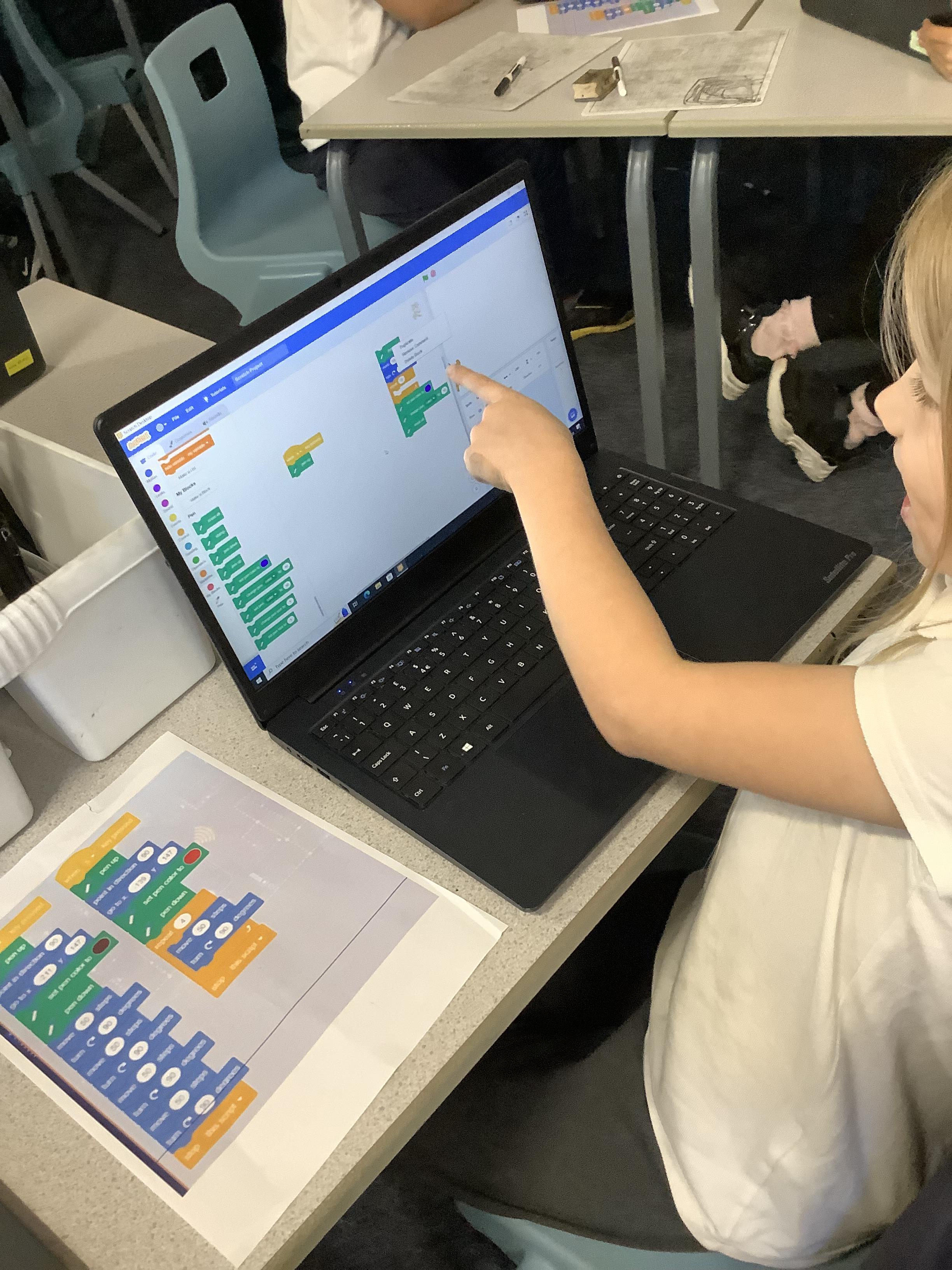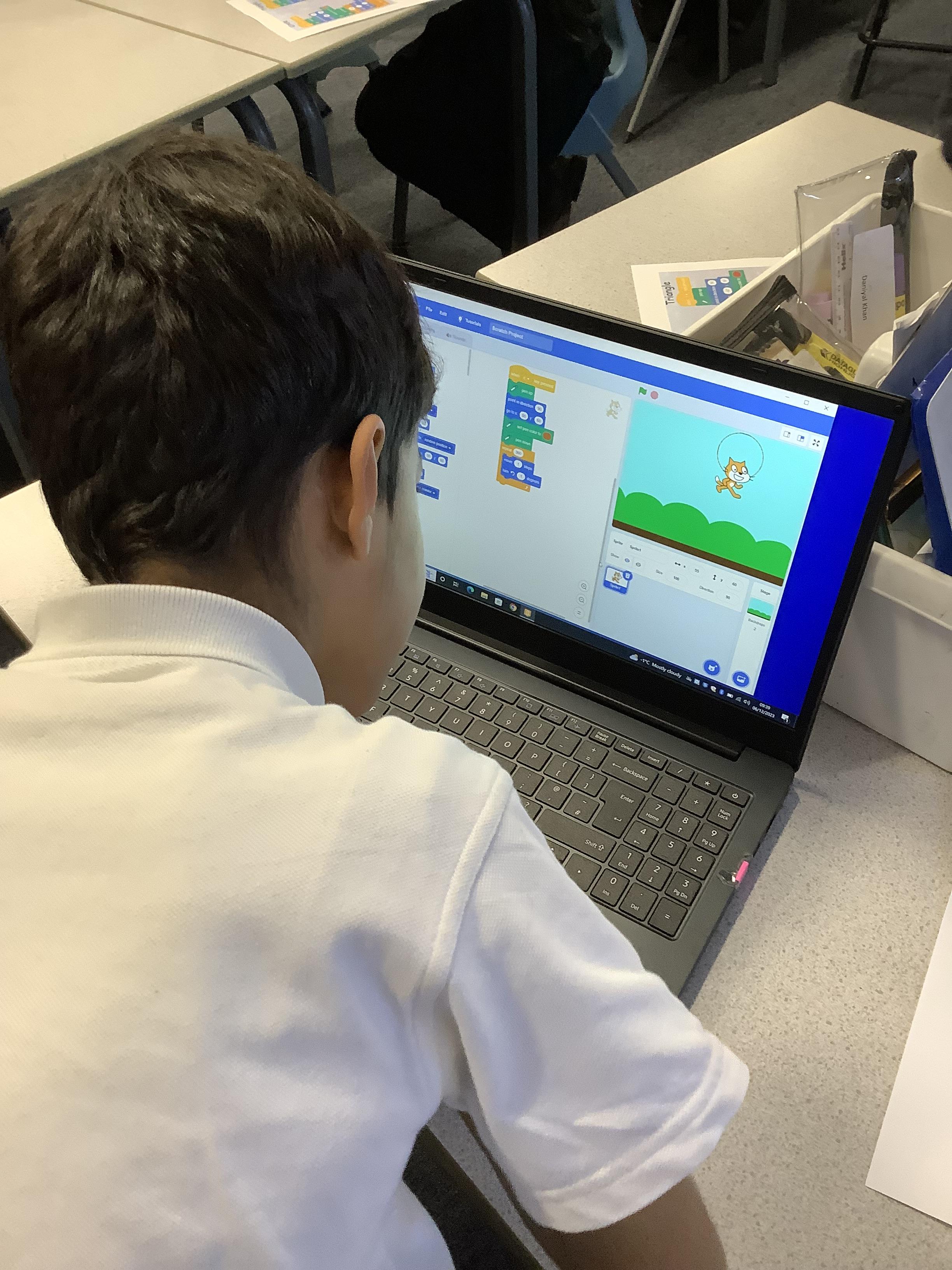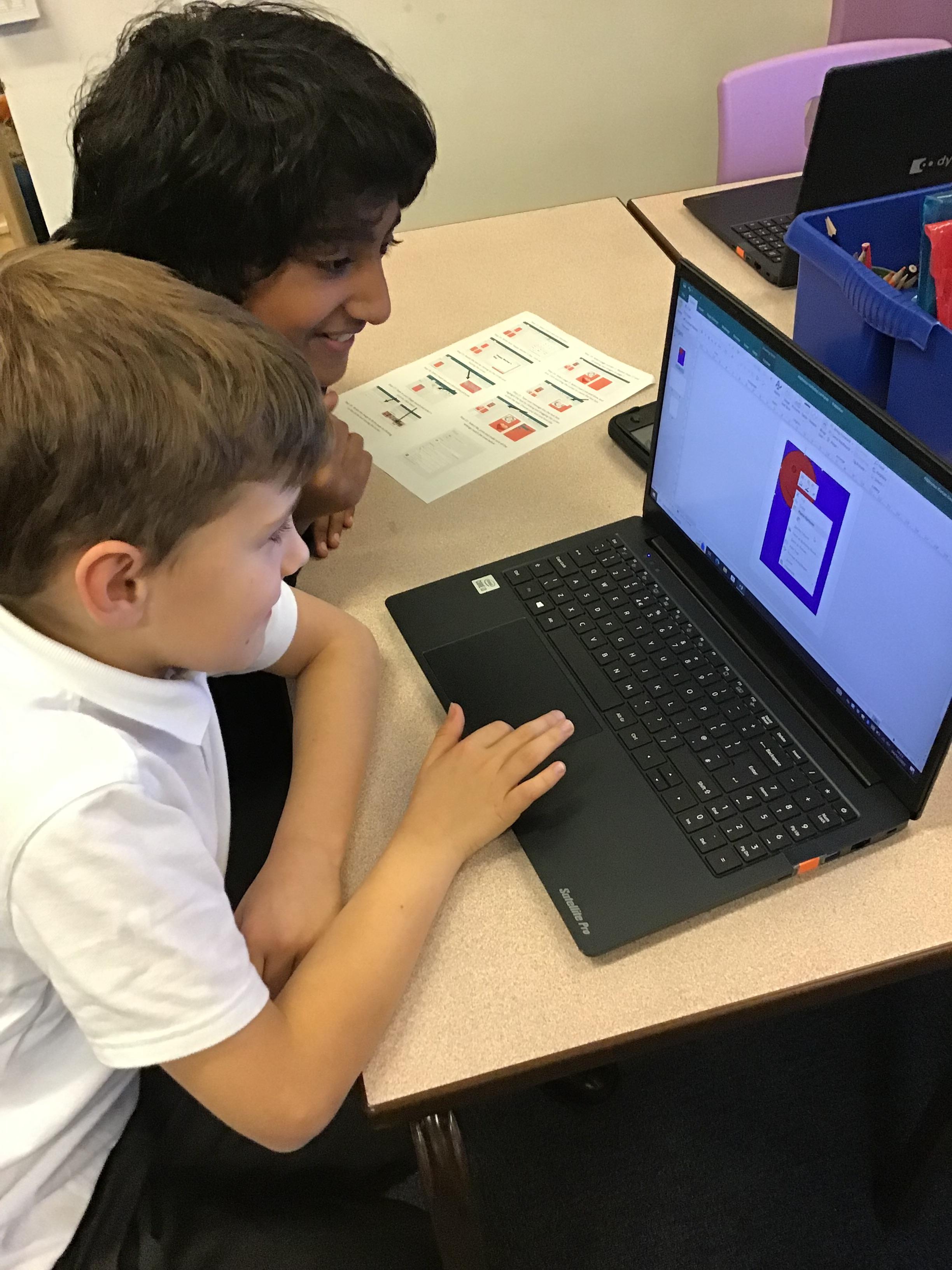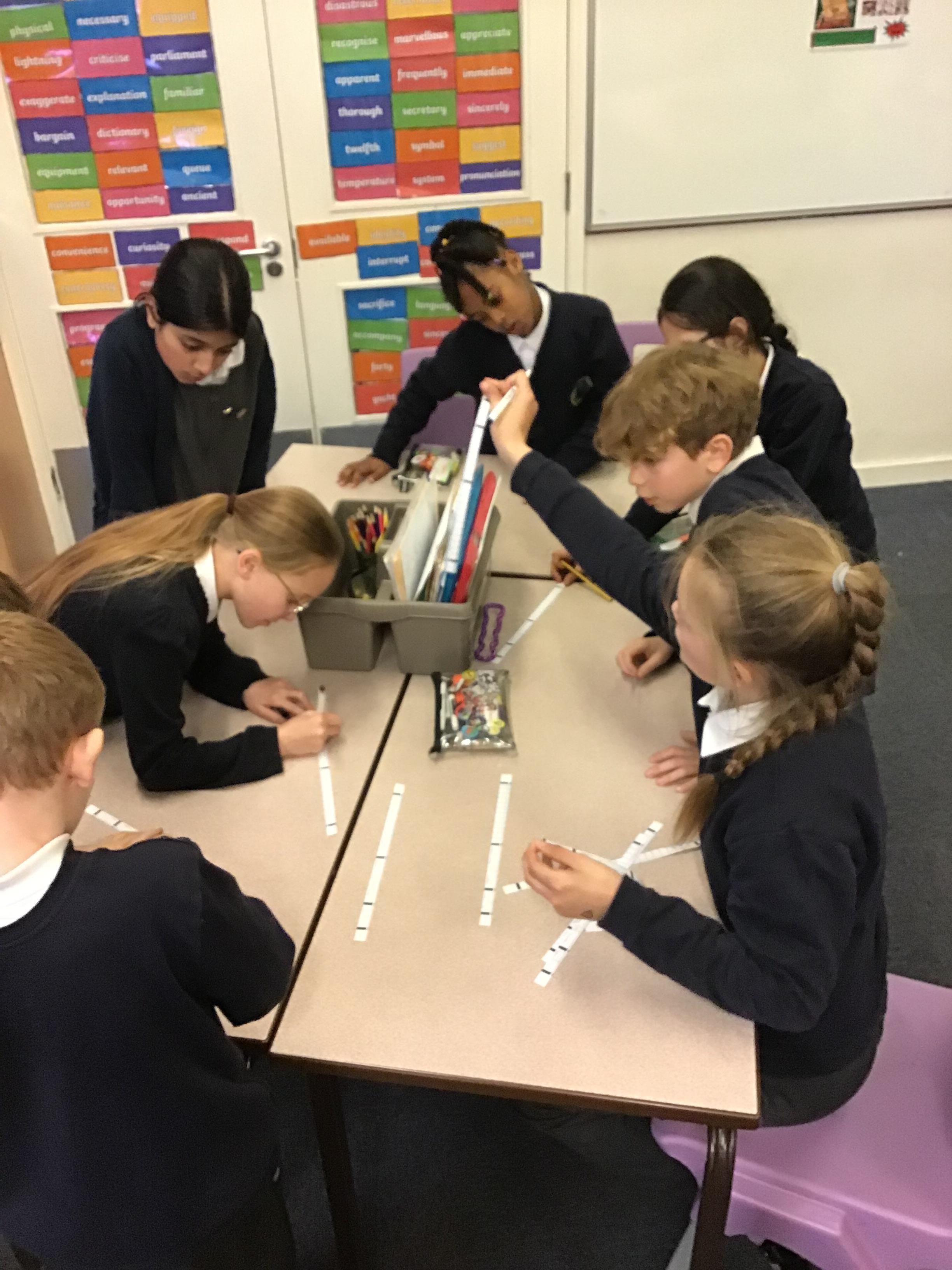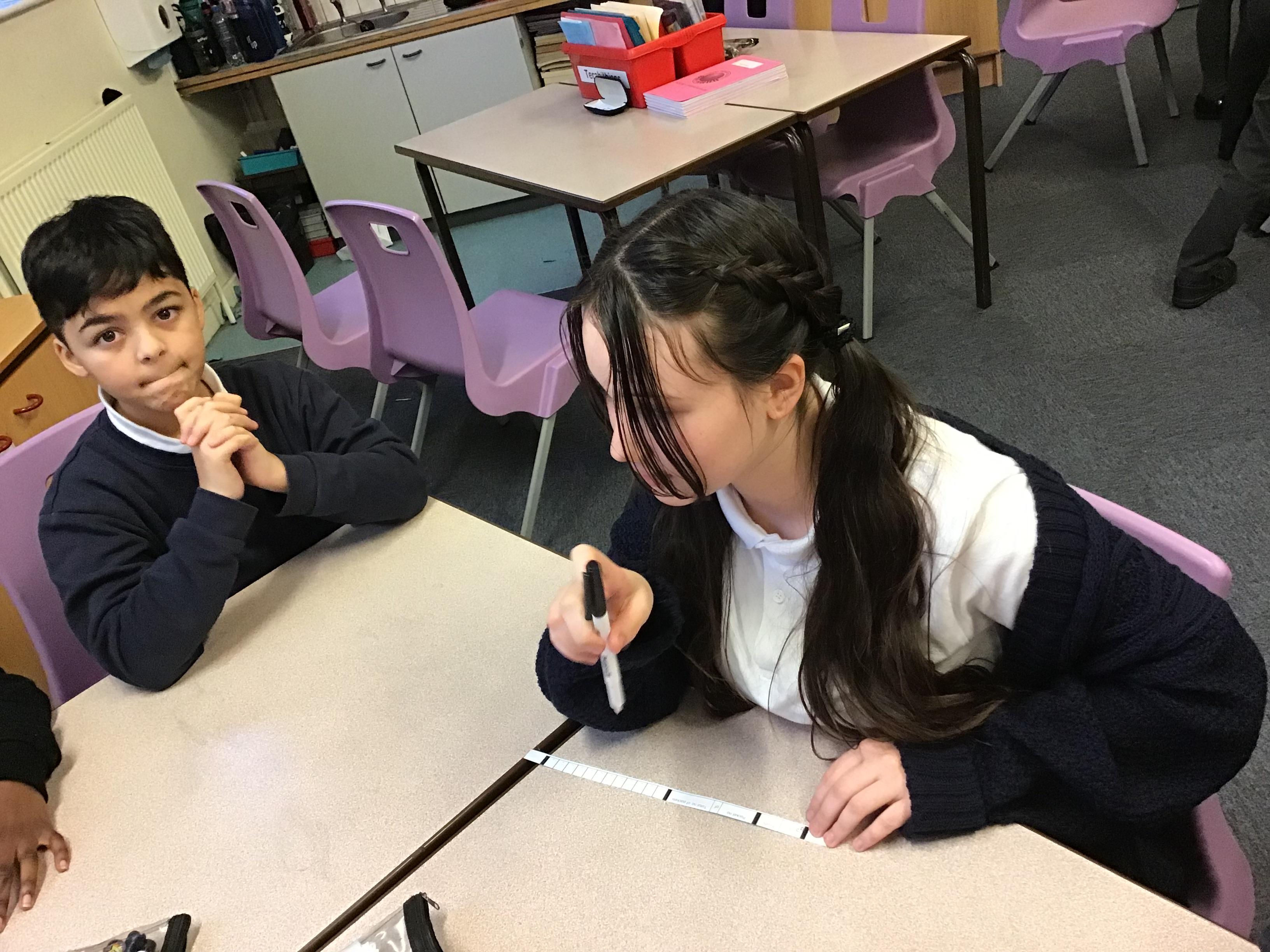Computing

Computing
“Computers are incredibly fast, accurate, and stupid. Human beings are incredibly slow, inaccurate, and brilliant. Together they are powerful beyond imagination.”
—Albert Einstein (1879 - 1955)
Subject Leader: Mr S. Firth
Subject Governor: Mr E. Fairfield
Intent Statement
At Pinders Primary School we believe technology is an integral and inescapable facet of modern life. We aim to equip our children with the skills they need to live safely in the increasingly digital world understanding that technology underpins every aspect of modern life – be that communicating with others, accessing government services or contributing to the workplace. We want our children to actively create, manipulate and develop their ideas – harnessing technology to work for them rather than passively consuming digital content. We will work with our pupils to build their understanding of both the benefits and drawbacks of technology allowing them to critically consider the content they encounter online, the choices they make and how to use technology appropriately. We understand that technology is not something that should be shied away from and actively model using technology safely.
We believe that technology is a key driver for engagement and leads to increased outcomes for our children. We invest in high quality technology to support our children in all of their learning across the curriculum to give prominence to its importance and safe use. We use our status as a SMART Exemplary School and an LBQ school to promote the benefits of technology within school and to the wider area.
Aims in teaching Computing at Pinders Primary School:
We aim to:
- Prepare children to live in an increasingly digital world.
- Teach children to actively harness technology rather than passively using it.
- Encourage children to critically consider their own use of technology.
National Curriculum Programme
How is Computing Taught?
Our broad and balanced computing curriculum is built around a clear sequence of progression in skills and knowledge. Children will embark on a seamless journey from EYFS to Year 6 which will develop them as independent and critical computer scientists. We have designed our curriculum sequence around a two year rolling cycle. We focus on computer science and algorithms in all years during the autumn term and revisit this with a specific focus on debugging within the summer term. During the spring term we look at data handling, multimedia and networks. Our computing curriculum is taught in discreet blocks throughout the year with clear cross curricular links as appropriate.
Understanding our school context, and the issues we see, we deliver our ESafety curriculum separately to highlight its prominence and to proactively tackle ESafety concerns. Our planned ESafety curriculum is delivered five times each year, we also teach additional lessons as required to respond to any emerging concerns.
How do we ensure progression of knowledge of skills?
At Pinders Primary School we have a comprehensive knowledge and skills progression document in place for the teaching of computing. This is used for planning, to ensure a sequenced and appropriate content for specific year groups, as well as a build up of knowledge and skills. Within these documents there are also opportunities for differentiation, in order to meet the needs of all learners.
Becoming A Computer Scientist
When children are learning about a subject through a discrete teaching session, they are explicitly told that today they are going to be 'Computer Scientists'. They are then reminded of the key skills that they will learn, use and develop within that subject.
In computing these are:
We are learning to:
- use technology safely
- solve problems by breaking them into smaller parts
- think critically and reach logical conclusions
- consider the audience or end user
- make efficient choices

Whole School Computing Overview
|
Cycle A Term 1 |
Cycle A Term 2 |
Cycle A Term 3 |
Cycle B Term 1 |
Cycle B Term 2 |
Cycle B Term 3 |
||
|
EYFS |
Ongoing development of skills: Use of Ipads in provision – access phonics/maths games, apps, camera, video… QR codes – linked to video, games, songs, defining vocabulary… Story phones – phonics songs, nativity performances, stories, listening to music… Computers – navigating a mouse, using a keyboard, selecting icons, computer based apps e.g. paint, selecting programmes… Beebots – programming, algorithms, navigation… SMART – all areas of learning, independent access… Chatterbox – speaking and listening opportunities… E-safety day Logging onto computer/Ipads Printing when using computers… |
||||||
|
Key Stage 1 |
‘A world of discovery’ Computer Science: Algorithms Y1 – BeeBots – Explore a mat. Y2 – Scratch - Explorer Animation ESafety Aut1: |
Topic: London’s burning’ Multimedia: Mother’s Day Cards/Invites Y1 – Clicker6 Y2 – Word ESafety Spr1: ESafety Spr2: |
Topic: Paddington’s Travels’ Computer Science: Debugging Y1 – BeeBots – Debug algorithm to a target location Y2 – Scratch – Debug Paddington animation ESafety Sum1: Fun and Games ESafety Sum2: |
Topic: ‘Enchanted Forest/Toys’ Computer Science: Algorithms Y1 – BeeBots – Explore a mat. Y2 – Scratch – Traditional tale Animation ESafety Aut1: |
‘Wonderful World’ Data Handling: Tables and Pictograms Microsoft Word Online Pictogram tools ESafety Spr1: ESafety Spr2: |
‘How does your garden grow’ Computer Science: Debugging Y1 – BeeBots – Debug algorithm to a target location Y2 – Scratch – Debug Paddington animation ESafety Sum1: ESafety Sum2: |
|
|
Lower Key Stage 2 |
Stone Age to Iron Age’ Computer Science: Pens and drawing Scratch – Drawing ESafety Aut1: |
‘Greeks’ Multimedia: Mother’s Day Cards/Invites Publisher Bifold ESafety Spr1: |
‘Greeks’ Networks: Local Area Networks ESafety Spr2: |
‘Local Area’ Computer Science: Quiz Computer Science: Sounds/ Composition Scratch – to be completed in music. ESafety Sum1: ESafety Sum2: |
‘Romans’ Computer Science: Maze Game Scratch ESafety Aut1: |
‘Window on the World’ Data Handling: Excel Enter data and create a bar graph. ESafety Spr1: ESafety Spr2: |
Anglo Saxons Computer Science: Anglo Saxon Animation Scratch – Drawing ESafety Sum 1 The Key to Keywords? ESafety Sum 2 Whose is it anyway? |
|
Upper Key Stage 2 |
‘Poppies, Peace and Power’ Computer Science: Scratch – Clocks and Timers ESafety Aut1: |
Natural Disasters Multimedia: Mother’s Day Cards/Invites Publisher quarter-fold cards and envelopes. ESafety Spr1: |
Natural Disasters Networks: How does the internet work? ESafety Spr2: |
Space Computer Science: Microbit Rover ESafety Sum1: ESafety Sum2: |
Vikings Computer Science: Scratch – Coin Generator ESafety Aut1: ESafety Aut2: |
Egyptians Data Handling: Excel Examine data, create line graphs, present findings in PowerPoint. ESafety Spr1: ESafety Spr2: |
‘Rainforests’ Computer Science: Microbit GPIO pins ESafety Sum 1 What’s Cyber Bullying? ESafety Sum 2 Selling Stereotypes |
Reading in Computing
Books flow through the veins of our school. Wherever possible, we use books as stimuli for new topics in all of our subjects. We have a stimulus book for every ESafety lesson and most of our computing blocks. See our book links below:
Computing and British Values
Cultural Capital
Cultural capital is the accumulation of knowledge, behaviours, and skills that a child can draw upon and which demonstrates their cultural awareness, knowledge and competence; it is one of the key ingredients a pupil will draw upon to be successful in society, their career and the world of work.
Significant people in Computing
When planning our curriculum we highlighted some key significant computer scientists for the children to learn about. These people were chosen for various reasons but are all known for their contributions to the field of computer scientists!
What does computing look like in our school?
Policies
The following policies are the core policies within the computing and ESafety curriculum.
- ESafety Policy
- Acceptable Use Policy
- Computing Policy
- Data Protection/ GDPR Policy
- Social Media Policy
You can access the most up-to-date versions by clicking the link to the policies area below.
Investing in Learning at Pinders Primary School
At Pinders Primary School we have, and continue to invest in technology. We have recently upgraded many of our boards and computing facilities to engage our pupils, many of which have English as an additional language. Learn more about the SMART solutions and Elementary technology enabled us to transform our classrooms into active learning environments by watching the video below. "I've got a particular passion for children that have got barriers to learning and it's those children that often really benefit from the technology," says Lorna Kemplay, Head Teacher.
